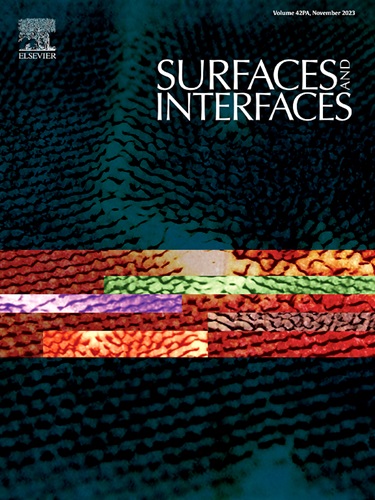Carbon aerogel and xerogel composites with polypyrrole as electrocatalysts for oxygen reduction reaction
IF 5.7
2区 材料科学
Q2 CHEMISTRY, PHYSICAL
引用次数: 0
Abstract
Due to their exceptional electrical conductivity and stability, carbon-based conductive polymer composites have attracted attention as non-platinum group metal (non-PGM) catalysts for the oxygen reduction reaction (ORR), a crucial reaction in electrochemical energy conversion. In this study, carbon aerogels (CA) and xerogels (CX, CXA) were first synthesized by sol-gel method under different drying conditions, including supercritical drying after solvent exchange of water with acetone (CA), drying under ambient conditions after solvent exchange of water with acetone (CXA), and drying directly under ambient conditions without solvent exchange of water with acetone (CX). Then, polypyrrole (PPy) composites were prepared by chemical polymerization over these carbon-based materials. Scanning and transmission electron microscopy with energy-dispersive X-ray spectroscopy and Raman spectroscopy were carried out on the synthesized CA, CXA, CX, and PPy composites. The electrochemical investigation of the synthesized materials reveals that they catalyze ORR mainly through two-electron reduction of molecular oxygen. The influence of the materials’ synthesis method, structure, and addition of PPy on their activity towards ORR was investigated. The best performance was observed for the CA2 catalyst, demonstrating the highest diffusion-limited current density, the lowest Tafel slope, the highest value of the half-wave potential, and the highest number of exchanged electrons. Furthermore, this material showed good stability during the long-term chronoamperometric study, making it a promising material for long-standing ORR catalysis.

求助全文
约1分钟内获得全文
求助全文
来源期刊

Surfaces and Interfaces
Chemistry-General Chemistry
CiteScore
8.50
自引率
6.50%
发文量
753
审稿时长
35 days
期刊介绍:
The aim of the journal is to provide a respectful outlet for ''sound science'' papers in all research areas on surfaces and interfaces. We define sound science papers as papers that describe new and well-executed research, but that do not necessarily provide brand new insights or are merely a description of research results.
Surfaces and Interfaces publishes research papers in all fields of surface science which may not always find the right home on first submission to our Elsevier sister journals (Applied Surface, Surface and Coatings Technology, Thin Solid Films)
 求助内容:
求助内容: 应助结果提醒方式:
应助结果提醒方式:


